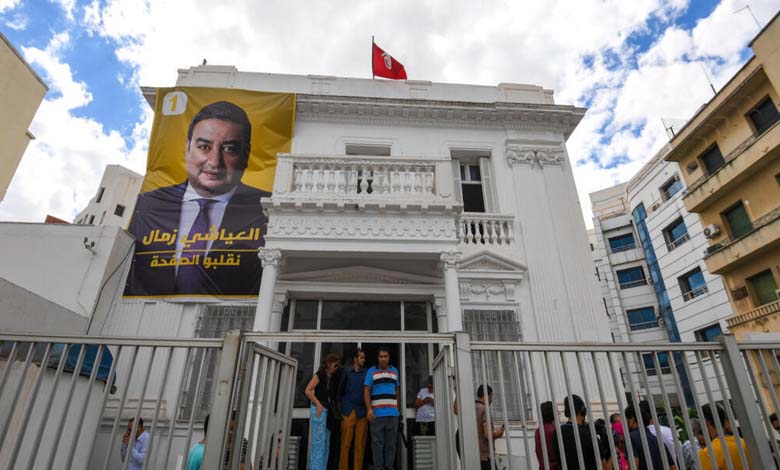Tunisia: Imprisonment of a former presidential candidate rekindles debate over the Brotherhood’s influence on the judiciary

The Tunis Court of Appeal upheld the eight-month prison sentence against dismissed judge and former presidential candidate Mourad Massaoudi, who was convicted of falsifying electoral endorsements.
-
The Tunisian Brotherhood… Exploiting crises to inflame the streets and attempt a political comeback
-
They Will Not Go Unpunished: The Accountability Process Tightens the Noose Around Tunisia’s Muslim Brotherhood
The ruling, issued on Saturday, September 6, 2025, brought back into focus the contentious issue of dismissed judges and its connection to the period of influence wielded by the Islamist Ennahdha movement within Tunisia’s judicial system.
The case dates back to the presidential elections of October 2024, when Massaoudi attempted to enter the race under the slogan “Tunisia: land of freedom, love, art and beauty.” He was soon accused of submitting fraudulent endorsements. Judicial investigations led to a conviction in the first instance, later confirmed on appeal, in a legal process that sharply divided Tunisian political and judicial circles.
-
Tunisia’s Muslim Brotherhood… Failed Attempts to Infiltrate Through the UGTT Crisis
-
The Ghannouchi Hunger Strike: A Desperate Attempt to Salvage What Remains of Tunisia’s Muslim Brotherhood
Massaoudi was among the 57 judges dismissed by President Kais Saied in June 2022 on charges of corruption, collusion, and concealing cases related to terrorism. However, part of these allegations directly referred to the period of Ennahdha’s rule, during which leaders of the movement were accused of attempting to extend their influence over the judiciary to shield allies or obstruct sensitive cases. For many observers, Massaoudi’s case thus symbolizes a broader legacy of Islamist interference in Tunisia’s judicial system.
The imprisonment of a former presidential candidate therefore represents more than a controversial judicial outcome; it also revives the debate over Ennahdha’s legacy in Tunisia, particularly regarding efforts to undermine judicial independence. While the current authorities seek to frame such cases as part of a broader campaign of systemic cleansing and anti-corruption, questions remain about Tunisia’s ability to overcome the politicization of its judiciary and move toward a framework that ensures transparency and public trust.
-
Four Years After the Fall of Tunisia’s Muslim Brotherhood: An End Mandated by the People
-
Tunisia’s Muslim Brotherhood: Failure in Power and in Opposition
-
On the Eve of the Verdict… Documents Reveal Tunisian Brotherhood’s Plot to Assassinate Kais Saied
-
Ghannouchi Continues to Hide Behind His Absence as Tunisian Judiciary Moves Forward
-
Marzouki’s Rebellion Map: A Desperate Bridge for the Return of Tunisia’s Muslim Brotherhood
-
Tunisia’s Brotherhood remnants under scrutiny… Saied: They have no place












